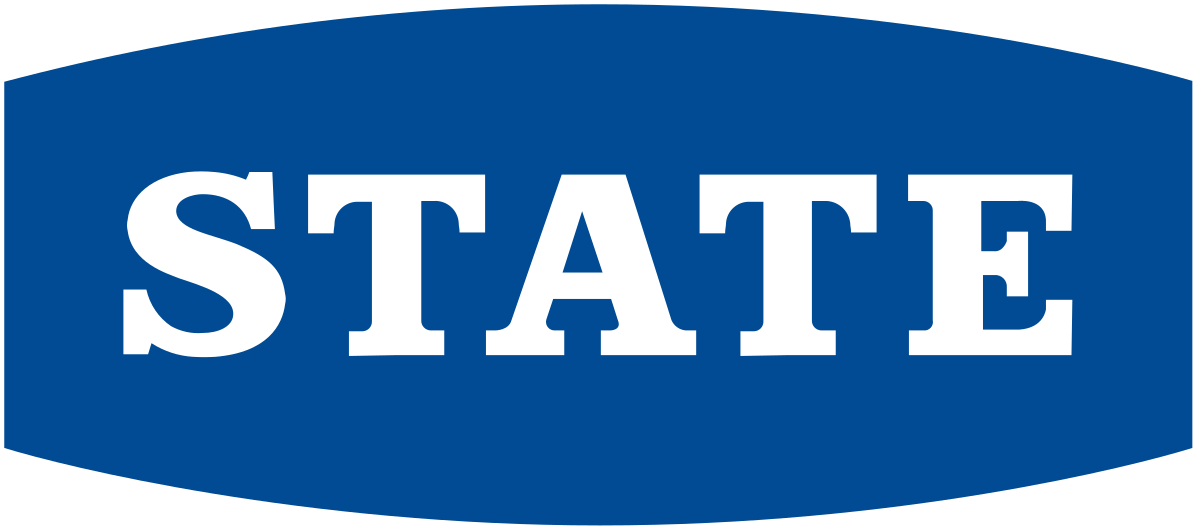Whether you buy from a private seller or a dealer, buying a used car can be a daunting process. But by doing your homework, and the correct due diligence, you can ensure that you don’t get stuck with a lemon.
1. Research prices
Check out sites like Autotrader, Trade Me and used-car dealers such as Turners. If you’ve a specific car make and model in mind, compare different cars and their conditions, ages and prices, so you’ve a solid knowledge of their market value. This will help ensure that you don’t overpay.
Alternatively, if you’re working to a budget, rather than a specific car model, use price selector tools on various website to see examples of the kind of cars available in your price range.
2. Do you want to buy a used car from a private seller or a used-car dealer?
Once you’ve decided on the type of car you want to buy and your budget, you need to consider whether you want to buy from a used-car dealer or private seller?
Buying from a used-car dealer
Pros:
- Registered dealers must display a Consumer Information Notice (CIN) on each of their cars. This reveals if there is any money owing on the car, if it has a warrant of fitness and important information about the car’s history. This saves you researching the car yourself.
- Registered dealers also need to comply with both the Consumer Guarantees Act (CGA) and the Fair Trading Act (FTA). These two acts give you much greater recourse should a problem arise with your purchase.
Cons:
- Used-car dealers have to cover their overheads and make a profit, which means their prices are usually higher than those offered by private car sellers.
- Not all used-car dealers are honest. So it always pays to check a dealer’s credentials. For example, their online reviews and trading history.
Buying from a private seller
Pros:
- By cutting out a car-dealer middleman, there’s the opportunity to secure a lower price.
Cons:
- You will have to research the car’s history yourself. For example, if there is outstanding debt secured against it, or if it is stolen.
- Private sellers are not covered by any consumer-protection laws; it’s pretty much buyer beware. So if there is a problem with your purchase, it will be far harder for you to recover your money.
3. Pre-purchase inspections
Toyota, the winner of Canstar Blue’s 2022 Award for Most Satisfied Customers | Used Car Dealerships, offers a full 3-year mechanical warranty with unlimited kms on all of its Signature Class used cars. But that type of used-car guarantee is an exception.
So regardless of whether you buy from a used-car dealer or a private seller, it’s a sensible idea to arrange a professional, independent pre-purchase inspection of the car you want to buy.
But before you pay for a pre-purchase inspection, there are a couple of steps you can take yourself to check whether a car has serious roadworthiness issues:
Check the WoF
Any vehicle sold in NZ by a dealer must have a valid Warrant of Fitness that is less than one month old. A private seller, however, can sell a vehicle without a warrant, provided the car is clearly identified for sale “as is, where is”.
Inspect the car for rust and repairs
Check under the bonnet for rust and oil leaks, and the boot lining for signs of rust or repairs. Look for corrosion in the wheel wells, and underneath the car (if possible). Also check around the windscreen and the rear glass. Bubbling paint is a sure sign that rust is present. In bright sun, check the panel work of the car; you can use a fridge magnet to test for signs of filler (it won’t stick). Makes sure the doors, boot and bonnet open and close smoothly, and check the gaps between panels. Uneven gaps are a telltale sign of bodywork repairs. Also check tyre tread – while not a deal-breaker, you might be able to haggle the price down if the car requires new rubber.
Take the car for a test drive
While a thorough test drive won’t reveal any hidden problems, it should give you a good idea of any immediate points of concern, such as worrisome noises.
Professional inspection
If your self-inspection goes well, and you are keen on the vehicle, it’s important to arrange for a professional inspection. Most independent garages perform these checks, as do big chains, such as the AA, which charges $184: AA Members | $209 Non Members, and Vinz ($205).
Some providers even offer mobile services, so you can organise for the inspector to meet you at an agreed location, rather than having to take the vehicle to a garage.
Even if you’re buying from a dealer that claims to have inspected its vehicles, it’s worth paying for your own independent inspection.
Dealers should always allow you to have a car inspected, although they might want you to complete a sales agreement first. If this is the case, ensure that you make the car passing its inspection with a clean bill of health a condition of sale, so you can pull out of the deal if a problem is discovered.
4. Check the used car’s history
If you’re buying from a private seller, it’s essential to check if the car is stolen, or has any finance owing. If you do buy a car that has outstanding debt, then the lender is within its rights to repossess the vehicle from you.
Fortunately, it’s a simple and cheap process to check both online. You can find out if the vehicle is recorded stolen by searching on the NZ Police website.
And discovering whether there’s any outstanding loans or finance on a car is just as easy. Register at the government’s Personal Property Securities Register site and for just $2.30 you can get a report outlining any money owing on a car by entering its number plate.
Alternatively a quick Google of “Vehicle History Report” will reveal a list of companies that offer to provide the same information in one report, from around $15.
5. The purchase process
Once you are ready to make a purchase, it’s important to understand how the purchase process works.
When buying via a dealer, you enter into a sales agreement. When buying privately, this is not required. However, it’s still possible to document the conditions of the sale.
Some things to consider in the buying process are:
Dealer sales:
- Sales agreements – before signing, carefully check all the details, making sure everything is accurate. If the sale is dependent on a clear pre-sale inspection, ensure this is recorded in the sales agreement. Don’t sign anything you have doubts about.
- Payment – don’t pay in cash. If the seller insists, it may be a sign to shop elsewhere. And always insist on a receipt or proof of purchase.
- On-road costs – confirm with the dealer that the total price includes or excludes on-road costs. On-road costs can include a WoF, registration, licence (rego) and road user charges, if you buy a diesel vehicle. If it does include on-road costs, ask for a breakdown of what on-road costs are included in your sale price.
- Extended warranties or breakdown insurance – these are not usually worth the extra charges, as you are covered by the CGA when buying from a dealer. If you do go ahead with either, confirm what is covered and excluded, and any special conditions that need to be met.
Private sales:
- Sales agreements – although a sales agreement is not required, you can create your own contract with the seller. It won’t offer you legal. protection, but will provide documented evidence of the sale. This could come in handy down the line if a problem occurs and you need to take the matter to the Disputes Tribunal.
- Register your ownership – both you and the vendor must notify Waka Kotahi of the change of ownership (within seven days to avoid fines or infringements). Further information is available here.
- Expiry dates – does the vehicle have a current licence (rego) and warrant of fitness (WoF)?
- Road user charges (RUC) – do RUC charges apply to the vehicle?
- Car’s registration status – this is the road tax displayed on the car’s windscreen. If it’s expired, a car’s registration can be renewed at any PostShop, or online here. It’s your responsibility to do this once you’ve purchased the vehicle.
6. Arrange insurance
It’s not mandatory to get car insurance in New Zealand, but we strongly recommend you get insured before you start driving your new car. Canstar compares a number of car insurance providers, so you can make a choice that’s right for your situation and cover needs.
Each year, we release our car insurance awards, covering winners for Insurer of the Year, Outstanding Value, and Most Satisfied Customers. As part of our award results, you can view our Outstanding Value Star Ratings for different age groups. Click here to view our complete car insurance Star Ratings for all age groups.
Financing your car
If you’re not a cash buyer, then you’re not alone: 80% of car buyers purchase their cars on finance. Shopping around for a new car is no doubt more thrilling than picking a personal loan. But there can be some serious savings available, just by comparing the personal loan market.
To help you make the right decision, Canstar has a simple tool that allows you to compare providers and their rates and fees. For more information, just click on the link below.
Compare car loans with Canstar
The table below displays some of the unsecured personal loan products available on Canstar’s database for a three-year loan of $10,000 in Auckland (some may have links to lenders’ websites). The products are sorted by Star Rating (highest to lowest) followed by company name (alphabetical). Use Canstar’s personal loan comparison selector to view a wider range of products on Canstar’s database. Canstar may earn a fee for referrals.
Compare car loans with Canstar
 About the author of this page
About the author of this page
This report was written by Canstar’s Editor, Bruce Pitchers. Bruce has three decades’ experience as a journalist working for major media companies in the UK and Australasia, including ACP, Bauer Media Group, Fairfax, Pacific Magazines, News Corp and TVNZ. Prior to Canstar, he worked as a freelancer, including for The Australian Financial Review, the NZ Financial Markets Authority, and for real estate companies on both sides of the Tasman.
Enjoy reading this article?
You can like us on Facebook and get social, or sign up to receive more news like this straight to your inbox.
By subscribing you agree to the Canstar Privacy Policy








Share this article